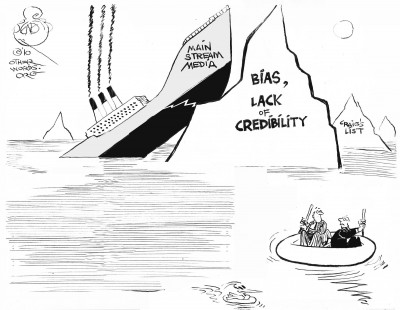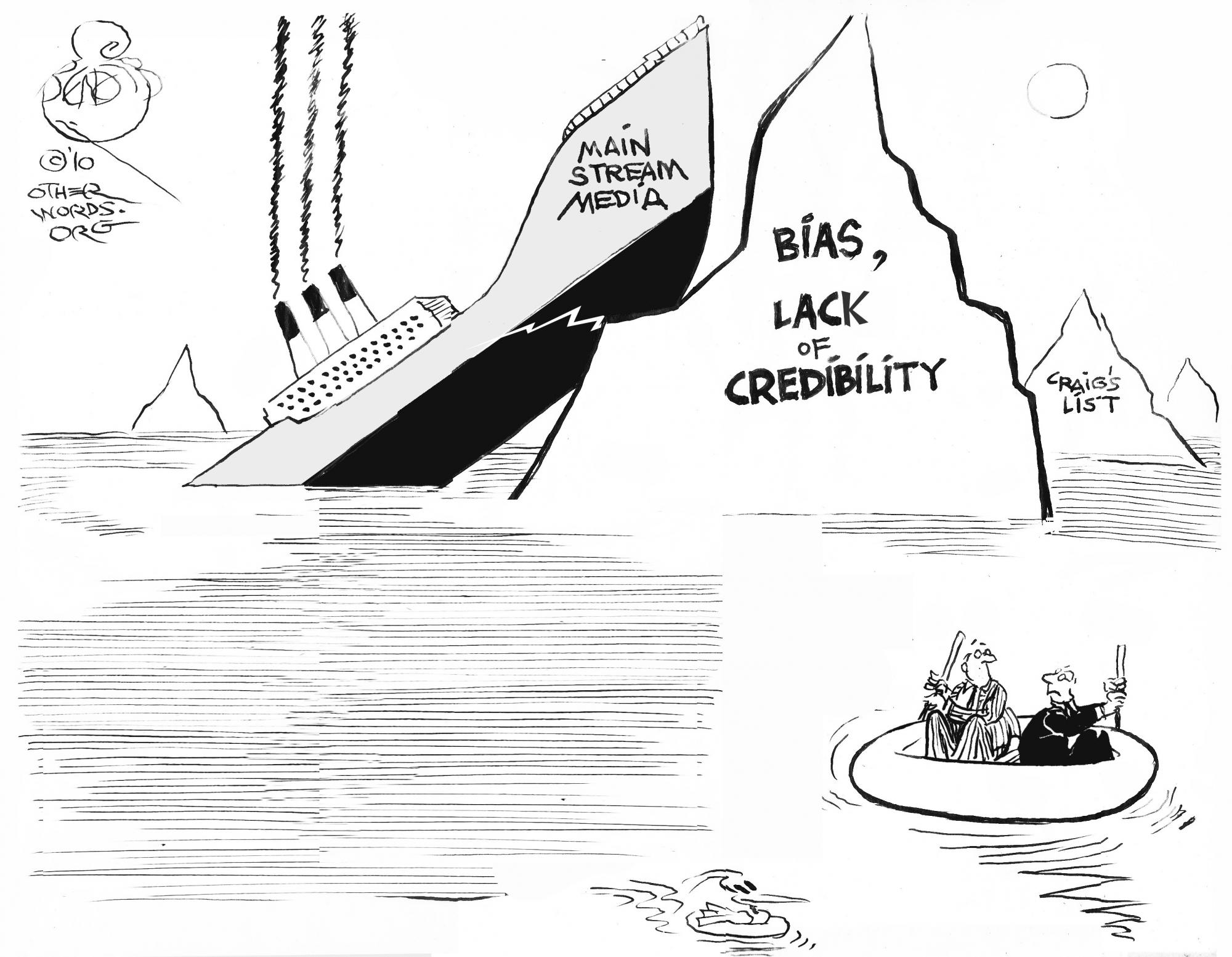Paper, TV,
Make me blue;
Hard to figure out
What’s true.
Recent times have been cruel to corporate media. Newspapers, magazines, TV, and even radio are all battling the wolf at the door. Often, the wolf wins. Print publications especially are under the gun. Many have closed and aren’t coming back. Others are mere shadows of their former selves.
Plainly it’s the Internet that has done most of the damage. We all get much of our news and entertainment now from that hypnotic screen. Who needs newsprint or a TV set anymore? And if we lean that heavily on our favorite websites, why bother to buy the paper or organize family schedules around the tube?
 In turn, with the public so disloyal to traditional media, advertisers are asking themselves why they should bother wasting money on it. By now many don’t, causing once haughty news organizations to wither before our very eyes. Newspaper ad dollars are about half of what they were in 2006. Rick Edmonds, who follows these things at the Poynter Institute, estimates that newspaper are spending $1.6 billion less on reporting and editing than they did in 2005. As a result, about 13,500 jobs at daily newspapers vanished between 2007 and 2009.
In turn, with the public so disloyal to traditional media, advertisers are asking themselves why they should bother wasting money on it. By now many don’t, causing once haughty news organizations to wither before our very eyes. Newspaper ad dollars are about half of what they were in 2006. Rick Edmonds, who follows these things at the Poynter Institute, estimates that newspaper are spending $1.6 billion less on reporting and editing than they did in 2005. As a result, about 13,500 jobs at daily newspapers vanished between 2007 and 2009.
Meanwhile, magazines are getting hammered too. Want to buy Newsweek? It’s for sale. Commercial TV news, always flimsy, is now wispy, and PBS seems to survive on a steadily growing diet of greenwashed commercials from otherwise malevolent corporations.
Sometimes this leads to poor news judgment. You may recall the coup in Honduras, for example. It wasn’t very long ago. The rest of the hemisphere condemned it, as did the U.S., at first. Then it turned out that guys we had trained had actually done it. Soon we supported the artificial election that followed. Now a kind of police state has evolved. But the U.S. media has lost interest.
Let the Internet handle it.
And fortunately the Internet does, plus a lot of other things. Because whether the issue is unemployment, war casualties, foreign policy, labor, immigration or most controversial subjects, the corporate media leans favorably toward the folks who pay the bills. Consequently consumers are being driven to the web to find out what’s really going on. Not only is this not rocket science, it isn’t even algebra.
So are we totally doomed in our mainstream search for information? Are newspapers and TV truly worthless? Well one good thing is happening. Nonprofit publishers are helping fill the gap in serious news. A few blessed foundations are funding much-needed investigative reporting and making it available to big media for free. Their reporters hail from that giant pool of the unemployed. There is even an occasional nonprofit hard copy newspaper that makes it to the stands. Independent TV is growing too. Foundations have channeled a total of $143 million into non-profit media, former Washington Post reporter Jill Drew said in a Columbia Journalism Review article.
To grow big, though, publications have to solicit advertising, and once you do that you have to filter truth. So while there’s a chance that those new nonprofits will one day improve the mainstream media’s quality, most likely each of us, in order to stay informed, will always need to keep finding our own personal balance between glitzy corporate news and the raw but ever-improving Internet.
